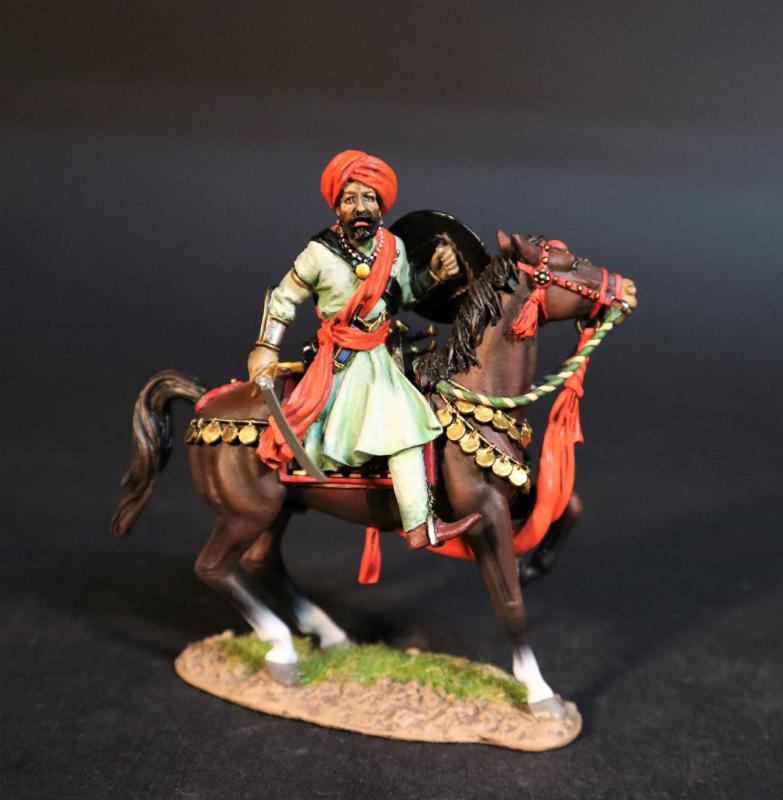Pindarrie (sword and shield, facing right), Maratha Cavalry, The Maratha Empire, Wellington in India, The Battle of Assaye, 1803--single mounted figure
$108.00
Item Number: M-WIN-18
Pindarrie (sword and shield, facing right), Maratha Cavalry, The Maratha Empire, Wellington in India, The Battle of Assaye, 1803
The Battle of Assaye was a major battle of the Second Anglo-Maratha War fought between the Maratha Empire and the British East India Company. It occurred on 23rd September 1803 near Assaye in Western India where an outnumbered Indian and British force under the command of Major General Arthur Wellesley (who later became the Duke of Wellington) defeated a combined Maratha army of Daulatrao Scindia and the Bhonsle Raja of Berar.
The battle was the Duke of Wellington’s first major victory and the one he later described as his finest accomplishment on the battlefield, even more so than his famous victories in the Peninsular War and his defeat of Napoleon Bonaparte at the Battle of Waterloo.
THE MARATHA EMPIRE
MARATHA CAVALRY
The Maratha cavalry in the 1803 campaign was probably their weakest arm, yet by far the most numerous.
The Marathas employed three classes of cavalry.
The first were the BARGIRS, the cream of their cavalry, paid for and maintained by the state. At the death of Shivaji in 1680, they made up two thirds of the cavalry force, yet by the Battle of Panipat in 1761, their numbers had dropped to just 6,000 out of 38,000 cavalrymen. This situation continued in the early years of the 19th Century as the Marathas continued to put more emphasis on their regular infantry battalions.
The second type of cavalry were known as SILLIDARS, who were irregular cavalry and these men provided their own horses and weapons.
The third type were known as PINDARRIES, and these were from various ethnic and religious backgrounds, with many being Muslims from the north. Pindarries were an irregular light horse formation who were paid a fee or provided their retainers with a percentage, normally one sixth of any booty taken for the right to plunder. They were used in the military role for screening the movement of troops, reconnaissance, raiding, and cutting supply lines. They were not good against formations of steady infantry or cavalry, but were perfectly capable of cutting down unwary troops.
Due to be released in OCTOBER 2022.
